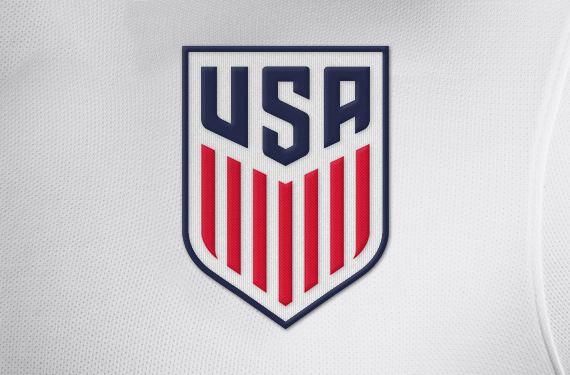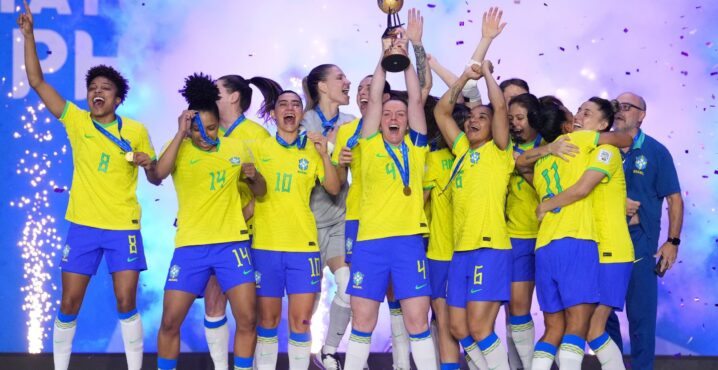Estimated reading time:7 minutes, 5 seconds
A pivotal shift that could reshape futsal’s future in America, but is the job fit for purpose?
As futsal continues its global rise, U.S. Soccer has taken a landmark step by making the Head Coach of the U.S. Men’s National Futsal Team a full-time position. The move, recognized by FIFA leadership and futsal experts alike, is more than an administrative change; it signals a strategic shift with long-term implications for the sport’s development across the United States.
But a deeper look into the official job description reveals a tension: Does this role truly reflect what the sport needs, or what the federation is comfortable with? While the full-time designation is welcome and long overdue, the framing, requirements, and responsibilities raise key questions about vision, autonomy, and whether futsal is finally being treated as a sport in its own right.
Why This Matters: The Elevation of Futsal in the U.S.
For decades, futsal in the United States has lived in the shadow not only of 11-a-side soccer but also of indoor soccer, the boarded, arena-style variant that gained traction through leagues like the MISL and MASL. Despite being a different sport altogether, indoor soccer has historically held an outsized influence over futsal’s trajectory in the U.S.
Unlike futsal, indoor soccer is not recognized by FIFA. Yet, U.S. futsal has often been shaped by personnel and philosophies imported from the indoor game, including the appointment of national team coaches whose professional coaching experience was focused on indoor soccer.
This crossover has blurred lines between the two sports, sometimes to the detriment of futsal’s authenticity and international competitiveness. Futsal’s unique tactical demands, smaller playing surface, and global playing style require a professional, specialised understanding due to living and breathing the sport.
U.S. Soccer, possibly cautious about competing with the entrenched indoor soccer scene, has until now kept futsal development on the margins. But by appointing a full-time head coach dedicated solely to futsal, the federation is making its first major statement that futsal is not a subsidiary of either outdoor or indoor soccer; it is its own game. But, for it to thrive, it must be led by those with deep knowledge of its specific systems at the international and professional level.
What the Job Description Says, And What It Doesn’t
On paper, the new full-time role covers everything a national futsal coach should touch: player development, technical planning, scouting, staff management, and coaching at major competitions.
But the language used, and what’s emphasized or omitted reveals deeper concerns:
- A Soccer-Centric, Not Futsal-First Mindset
“Proven history successfully managing players and staff within a soccer environment.”
This requirement stands out, and not in a good way. Instead of seeking elite futsal coaching experience, the job prioritizes a background in the traditional soccer system. This raises red flags: Is U.S. Soccer still seeing futsal as a feeder for soccer rather than a standalone sport? If so, it undercuts the very identity of futsal and risks sidelining the unique tactical expertise the role demands.
In fact, there’s no requirement for international futsal coaching experience, nor mention of futsal-specific licensing, such as a UEFA B futsal licence or the CONMEBOL Pro license, etc.
If U.S. Soccer were serious about global competitiveness, this would be a non-negotiable, not a footnote.
- Implicit Preference for an American Coach
While nationality isn’t stated, the structure of the requirements paints a clear picture:
- “Understanding of the soccer landscape in the U.S.”
This expectation inherently favours candidates with deep U.S.-based experience. An elite futsal coach from Spain, Brazil, Portugal, or Iran—arguably among the most qualified in the world – might not qualify simply due to unfamiliarity with the fragmented U.S. soccer system.
This preference signals a risk-averse approach: instead of pursuing the best futsal minds globally, the listing appears to lean toward someone who can navigate federation structures, possibly at the expense of on-court tactical innovation.
Even the only nod to global relevance, “bilingual (English and Spanish)”, is a “desired” rather than required skill, suggesting global outreach isn’t a high priority.
Is the Coach Truly Empowered?
The job description spans technical leadership, player scouting, coach development, and stakeholder engagement. But it also reads like a catch-all administrative role. The coach is expected to:
- Run national team camps and matches.
- Develop grassroots and club-level relationships.
- Coordinate with sponsors and media.
- Support other ENT teams (like beach soccer and CP football).
- Design and deliver coaching education.
This raises concerns about role dilution. Without clarity on support staff, budget, or authority, it’s unclear whether the coach is being empowered to lead the sport or being tasked to administratively babysit a system still lacking structure.
Worse, no Key Performance Indicators (KPIs) are defined. Is success measured by World Cup qualification? Talent development? Coaching outreach? The vagueness here could limit accountability and long-term planning.
Futsal-Specific Vision Still Lacking
There’s a repeated reliance on terms like “The U.S. Way” and “soccer landscape,” with little articulation of what the “futsal way” looks like for America. Has U.S. Soccer defined it? Or will the coach be allowed to develop it? The absence of a stated futsal philosophy, methodology, or tactical identity indicates that the sport’s DNA is still being borrowed from 11-a-side thinking.
In this context, it’s hard to tell whether the coach will lead a revolution or be expected to manage within pre-established (soccer-centric) boundaries.
Where the Job Description Gets It Right
To its credit, the position recognizes the need to:
- Create a national futsal player database.
- Deliver “Dedicated Training Weeks” and individual development plans.
- Support futsal-specific coach education (though only vaguely defined).
- Identify “talent transfers” from other disciplines (which could be a real asset if done well).
These responsibilities suggest at least a partial understanding that futsal needs tailored infrastructure and its own development model. But again, without detail or support systems, it’s unclear how the coach will achieve these ambitious goals.
A Larger Conversation: What Does This Say About U.S. Soccer’s Futsal Vision?
This job listing exposes a federation still learning how to value futsal. While making the position full-time is a win, the lack of futsal-specific criteria, strategic support, and global benchmarking shows that futsal remains a second-tier sport within U.S. Soccer’s ecosystem.
This is reflected in broader gaps:
- No requirement to create or assist with the creation of a futsal coaching license pathway in the U.S.
- No national futsal academy infrastructure.
- No formal futsal integration in youth club development.
- No U.S. coordinated national competition structure to aim for future professionalism development
Without alignment on these fronts, the new head coach risks operating in isolation, a talented tactician stuck coordinating logistics and outreach, rather than elevating the national program to world-class standards.
Conclusion: A Full-Time Role That Needs Full-Time Vision
U.S. Soccer’s move to appoint a full-time Men’s Futsal National Team Head Coach is a milestone. It shows progress, ambition, and a growing respect for a sport with global significance and untapped potential in the U.S.
But a closer read of the job description reveals that futsal is still fighting for its identity and its autonomy within the U.S. Soccer landscape. If the federation wants futsal to thrive, it must start treating it like a first-class citizen of the sport: with specialised infrastructure, leadership autonomy, and a willingness to learn from countries that do it better.
This job could be transformative. But only if U.S. Soccer allows it to be.
Organ Donation
Futsal Focus is a supporter of Dáithí Mac Gabhann and his family’s campaign to raise awareness of Organ Donation. We encourage our readers to learn more about Organ Donation: https://www.organdonation.nhs.uk/
Futsal Focus
You can read more articles about International Futsal by going to the top navigation bar or by clicking here
If you like this article and would like to keep updated on Futsal news, developments, etc. You can now follow Futsal Focus via Google News. By following our page which will send you an alert as soon as we publish an article. Please click here and follow us on Google.
You can also keep updated on Futsal news, developments by submitting your email below in the Subscribe to Futsal Focus option.
Follow Futsal Focus by clicking on Facebook, Twitter, or Instagram or on the social media buttons on the website

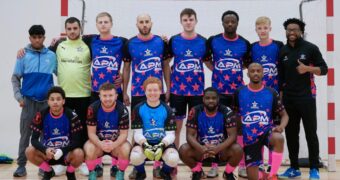


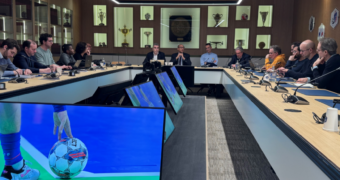


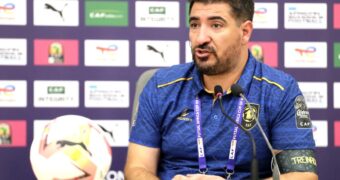
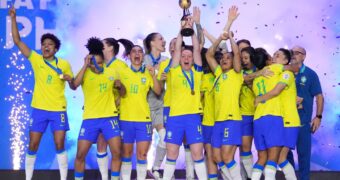
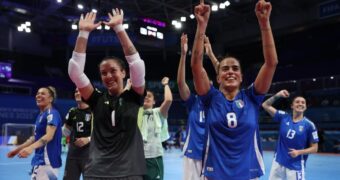
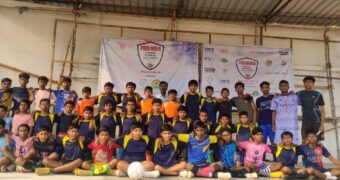





![Validate my RSS feed [Valid RSS]](https://www.futsalfocus.net/wp-content/uploads/2020/01/valid-rss-rogers.png)

